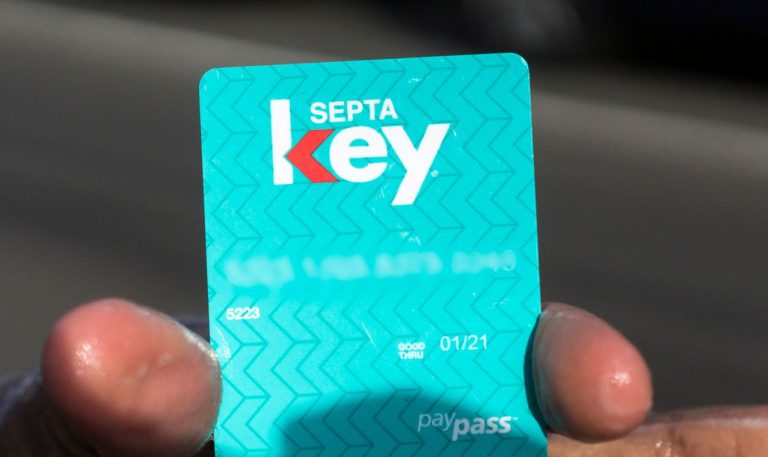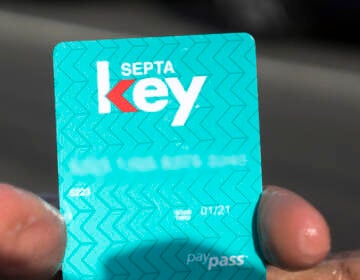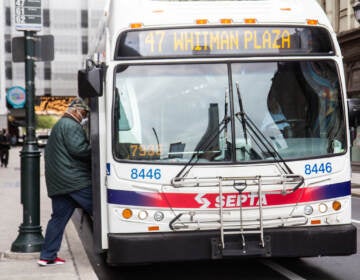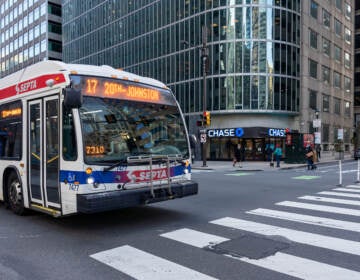SEPTA nods to customer feedback, reduces Key Card minimum load to $1
SEPTA riders no longer need $5 to add a boost to their Key Card travel wallet.The minimum farecard load has been reduced to $1.

A customer holds up a SEPTA Key card. (Danya Henninger/Billy Penn)
This article originally appeared on PlanPhilly.
—
Your basic donut, a Wawa coffee, a cigarette from a stranger, and now, a SEPTA Key card boost.
A buck is the new minimum travel wallet load on a Key farecard.
SEPTA reduced the Key minimum from $5 to $1 in response to customer feedback, the transit agency said in a Tuesday announcement of the change.
Critics have said that $5 minimum shut out riders moving around the city without much spare cash.
Andrew Busch, a SEPTA spokesperson, described the change as part of the agency’s push to make the new Key system more “user-friendly.”
It’s the second time SEPTA has reduced the minimum since the key card’s rollout in 2016.
Riders can now load their card for $1 at select station kiosks along the Market-Frankford Line and the Broad Street Line. SEPTA will add the option to more kiosks every week until July 8 when riders can load up for a buck at all MFL and BSL kiosks.
The new option is available to customers paying cash, credit or debit, and ought to help riders looking to load their key cards on a daily or per-ride basis. Before the change, these riders would be dinged with additional costs for being unable to pay the $5 minimum.
They’d be charged $2.50 for a single ride ticket instead of the reduced $2 fare on the key card. And if they had to transfer, they paid another $2.50 instead of the $1 transfer fee, which may soon be on its way out.
WHYY is your source for fact-based, in-depth journalism and information. As a nonprofit organization, we rely on financial support from readers like you. Please give today.







